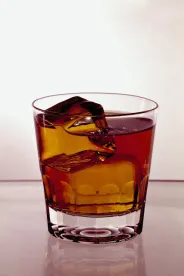Addressing whether the word “tequila” can be registered in the United States as a certification mark, the Trademark Trial and Appeal Board (TTAB) answered in the affirmative, dismissing an opposition alleging that “tequila” is a generic word for distilled spirits. Luxco, Inc. v. Consejo Regulador Tequila A.C., Opp. No. 91190827 (TTAB, Jan. 23, 2017) (Bergsman, ATJ).
Consejo Regulador del Tequila (CRT) is a Mexican nonprofit civil association and the only entity accredited and approved by the Mexican government to ensure the authenticity, origin, quality and safety of tequila. As part of its accredited role, CRT sought to register TEQUILA as a certification mark for “distilled spirits, namely, spirits distilled from the blue tequilana weber variety of agave plant,” so that TEQUILA, as used by persons authorized by CRT, would certify that the spirits are manufactured in Mexico from a specific variety of the blue agave plant grown as defined by Mexican law and standards. A “certification mark” is defined in § 45 of the US Trademark Act as any “word, name, symbol, or device, or any combination thereof . . . to certify regional or other origin, material, mode of manufacture, quality, accuracy, or other characteristics of . . . goods or services or that the work or labor on the goods or services was performed by members of a union or other organization.”
Since 1958, Luxco has imported and bottled alcoholic beverages, including tequila, and distilled specialties containing tequila. CRT certified that all the tequila that Luxco imports is authentic in accordance with Mexican law. Despite this certification, Luxco opposed the registration of CRT’s certification mark, claiming that “tequila” is a generic term for distilled spirits.
Before reaching the merits, the TTAB examined whether Luxco had standing to bring the opposition against the certification mark. To oppose an allegedly generic term, the plaintiff must show that it is in a position to use the term in a descriptive or generic manner. Here, the TTAB found that Luxco met this burden, and also found that CRT’s registration of TEQUILA as a certification mark would add a new layer of protection to the term and might thereby create challenges for Luxco in the labeling and marketing of certain of its tequila products.
The TTAB then turned to the merits of Luxco’s claim that “tequila” is a generic term. Under US trademark law, the public’s perception is the primary consideration in determining whether a term is generic. However, a certification mark identifying geographic origin will not be deemed to be a generic term if it retains its ability to designate geographic source. In this case, the TTAB first determined that the relevant goods were “spirits distilled from the blue tequilana weber variety of agave plant.” Second, the TTAB examined whether the purchasing or consuming public primarily understands the word “tequila” to refer to that class of goods. In this regard, the TTAB noted that in 1973, the US Alcohol and Tobacco Tax and Trade Bureau recognized tequila as a distinctive product of Mexico, which established that the term “tequila” may not be used commercially in the United States to describe any product not manufactured in Mexico in compliance with applicable Mexican laws. According to the TTAB, the Bureau’s regulations are probative in determining whether a term is distinctive or generic. However, because public perception takes precedence in the genericness analysis, the TTAB also examined whether end consumers (not just tequila manufacturers) would perceive tequila to be a distilled spirit that comes from Mexico.
The TTAB looked at dictionary definitions, encyclopedia entries, internet search engine results, product labels and other information sources, and found that they tended to show that consumers would perceive that tequila is a Mexican alcoholic beverage. The TTAB also found that advertisements for tequila brands tended to have a “Mexican theme,” incorporate the word “Mexico” and/or use the Spanish language such that these advertisements “deliberately make a linkage to the country of Mexico.” Moreover, CRT introduced into evidence numerous news articles associating tequila with Mexico, and CRT’s survey evidence suggested that 55.4 percent of respondents believe that “tequila” indicates that the product is made in Mexico. Therefore, the TTAB found that Luxco failed to show that tequila is a generic term.
Luxco also argued that the government of Mexico, and not CRT, is the correct owner of the term “tequila.” The TTAB disagreed, explaining that because the Mexican government authorized CRT to apply to register the certification mark in the United States as the entity that verifies compliance with the Mexican standard for tequila, CRT has the right and authority to control the use of the term as a certification mark in the United States and was exercising legitimate control over use of the term.




 />i
/>i

